|
28 September 2018
The t-shirt in the struggle: heritage objects of resistance
When people think of Heritage Day it is usually on a personal cultural level. Heritage is legacy, be it in the form of objects, buildings or cultural heritage. SAHA is a holder of objects which are a part of South Africa’s collective heritage. This month we will take a focus on some of the objects in the Ephemera Collection (AL2540). SAHA holds a large collection of t-shirts from anti-apartheid struggle which are often not noticed in the story of the struggle.
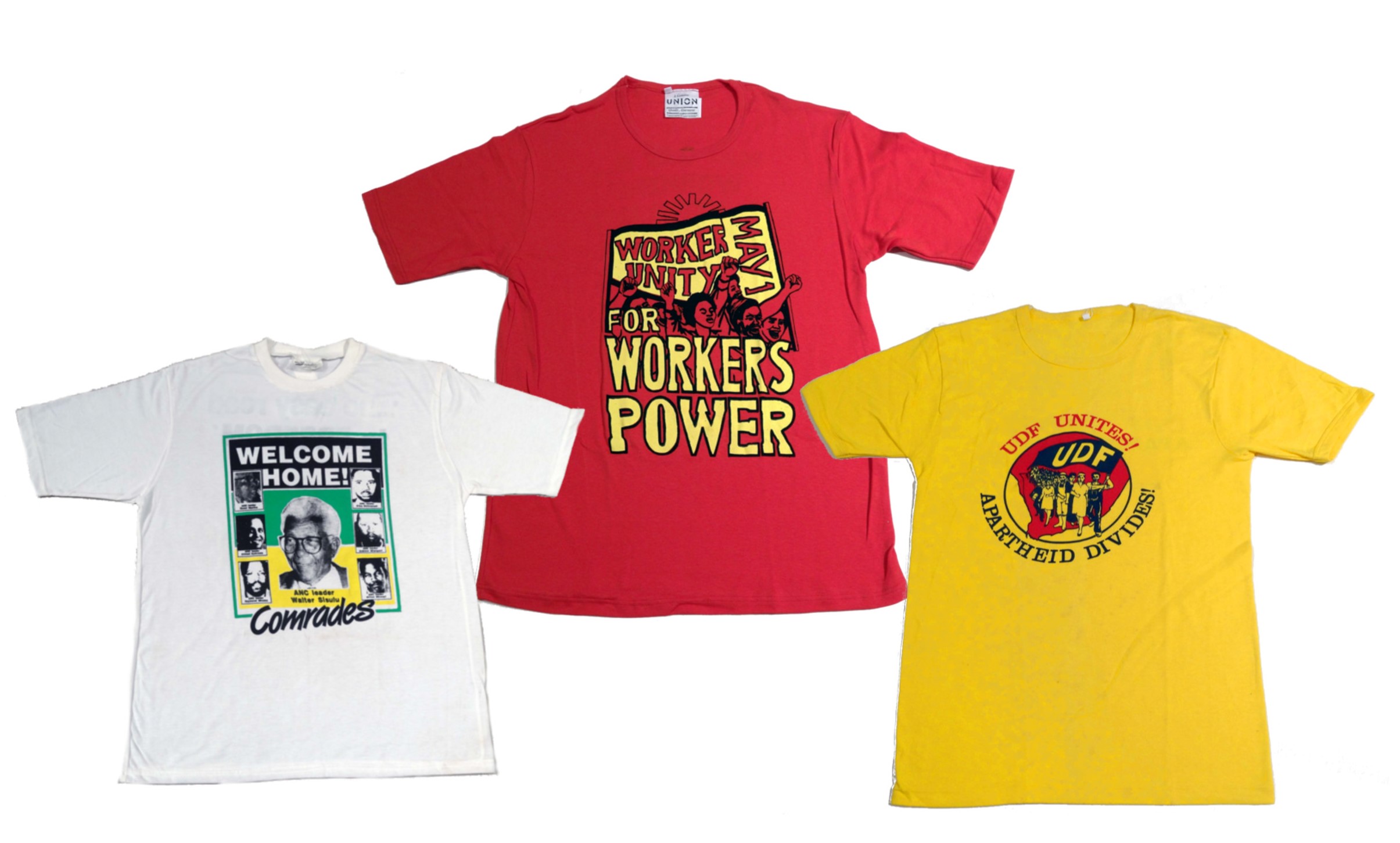
A challenge with preserving these objects is that they were often printed on cheap low quality fabrics, as unlike posters, the cost of the t-shirt to print on was far higher than paper. When examining the t-shirts in the collection one can see that several have the same producer but often there was great inconsistency between different sizes and shapes even with the same print. As an archive there is the constant desire to make cultural heritage accessible to all. Which is often at odds with preservation measures. It is a fine line between safeguarding and gatekeeping our shared heritage.
T-shirts are situated in an interesting part of the struggle. “This t-shirt … became a political imperative for which the physical self was willingly placed in direct danger in order to resist. Indeed, the t-shirt without a body had little power and could be said to be inert. It was only in the wearing, that the true power of the t-shirt was activated.”* Photographs of mass protests show the effective way that t-shirts united activists. The wearers cultural background does not matter however it is the message that the wearer is conveying by wearing the object of defiance.
There were different kinds of t-shirts produced. There were those with a political affiliation, those with a message or those commemorating the deceased in a funeral shirt. Gathering in large numbers was illegal due to the laws imposed by the state. Due to this, attending funerals of activists who were killed by the apartheid regime became a prominent part of mass activism. Funerary t-shirts were printed with the faces of those who had been killed and were worn to these funerals.
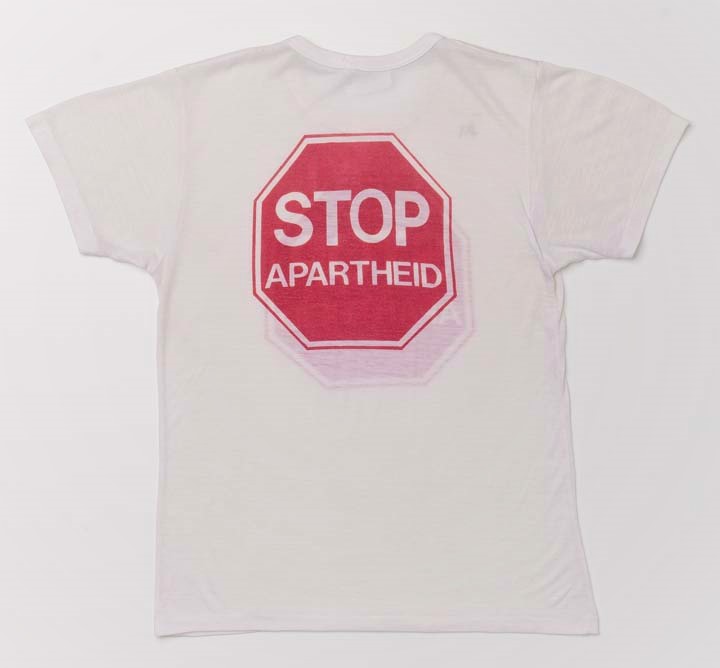 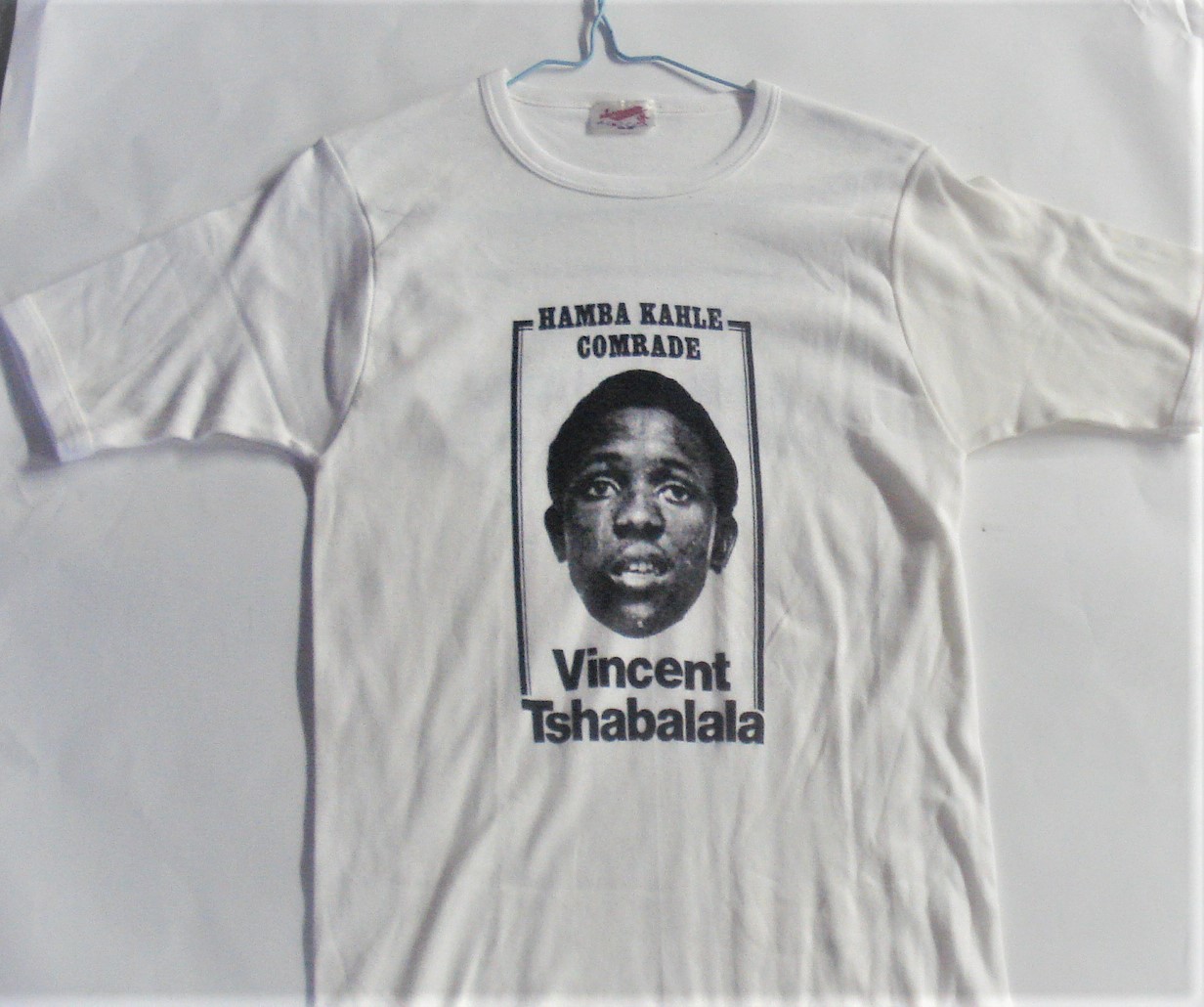 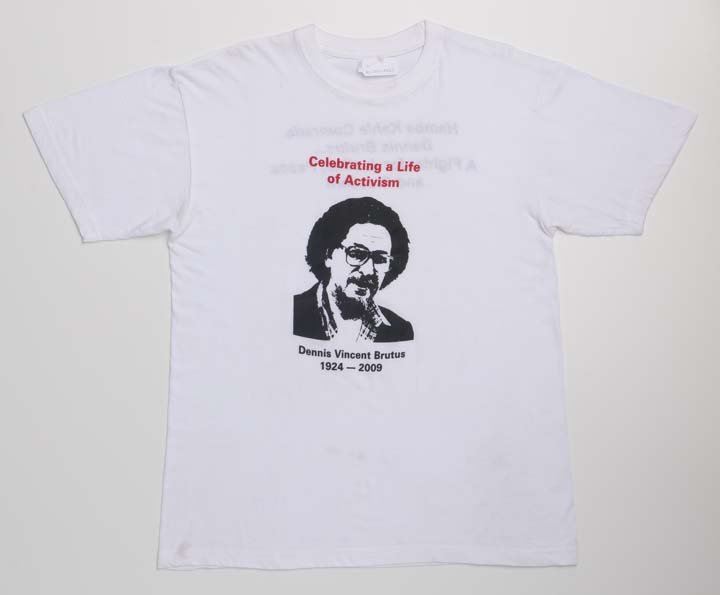
What is fascinating about these objects is “the corporeal nature of a t-shirt - its closeness to the body -implicated the subject in the struggle, made the wearer accountable for expressing the message of resistance: a dangerous and illegal act under apartheid”**
SAHA will be holding a struggle t-shirt exhibition later this year. If you wish to be invited please contact archives@saha.org.za to be sent the invitation to the opening.
* **Frances Andrew, Hamba Kahle: South African struggle t-shirts from the decade of community mobilisation. Thesis in completion of a Masters.
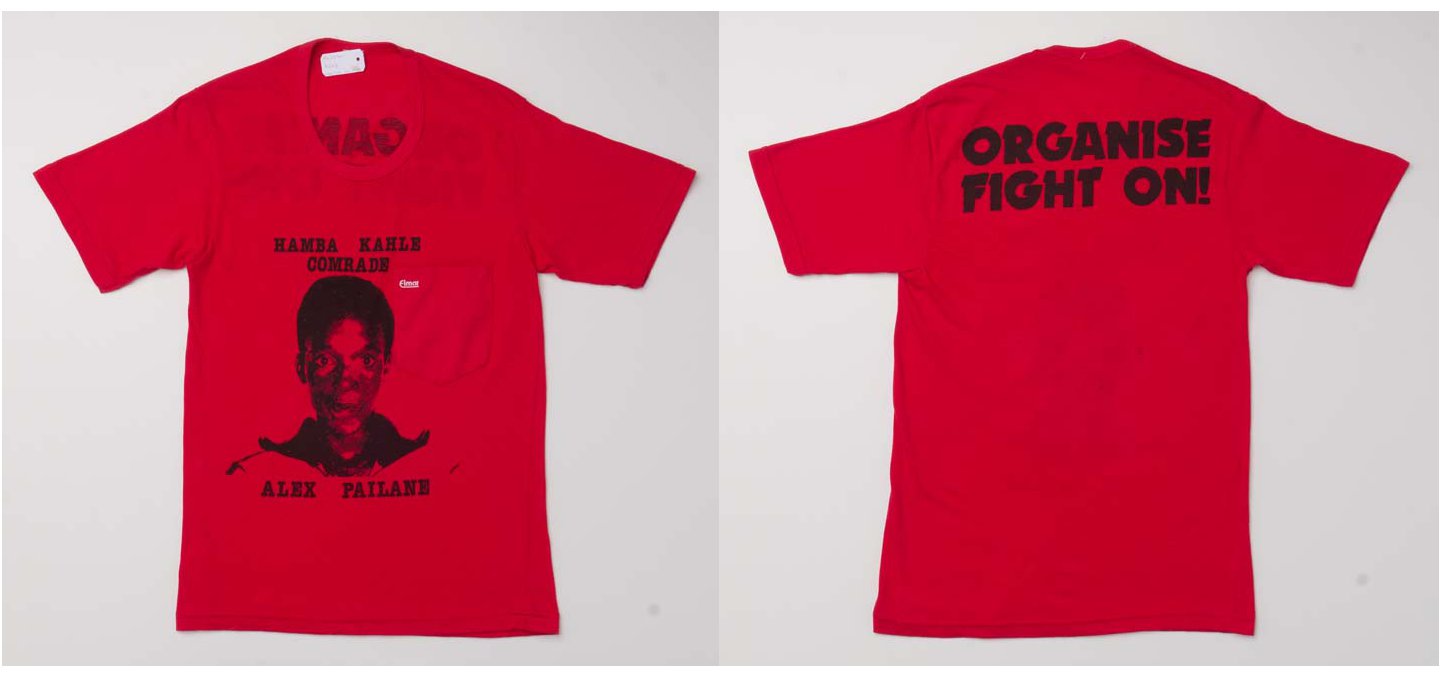
|











